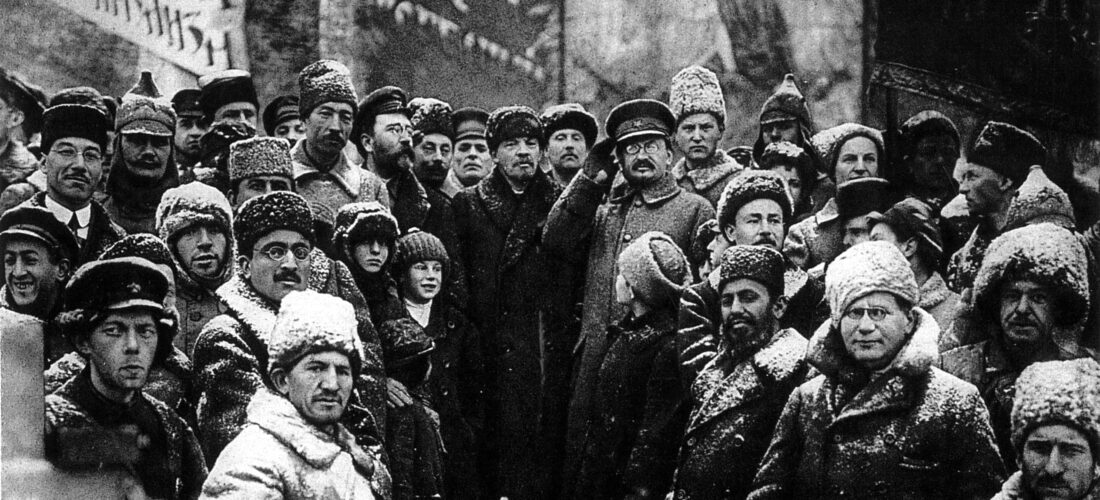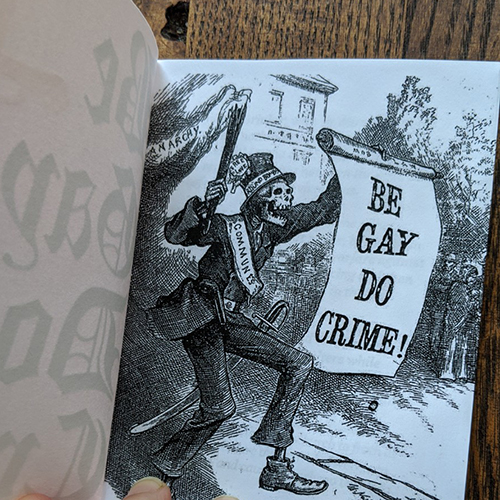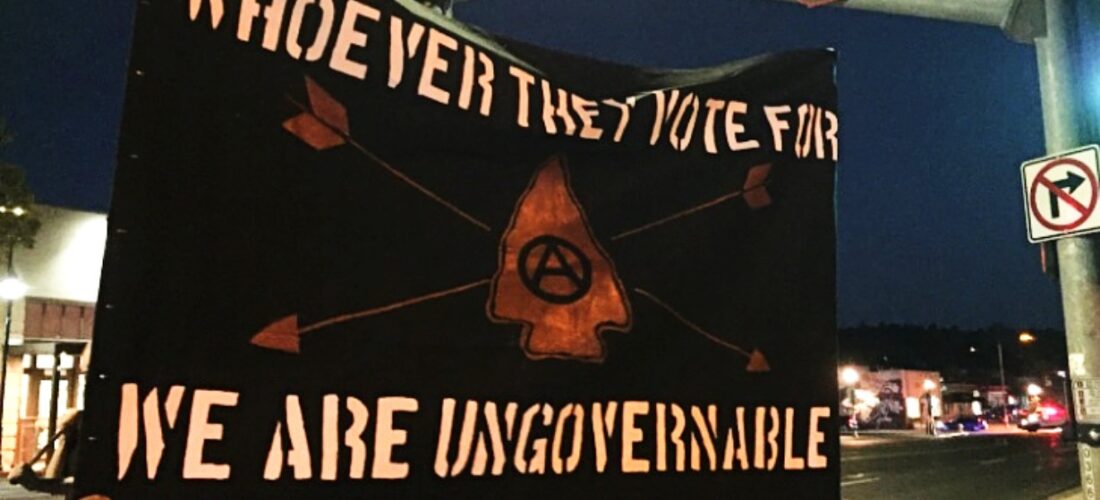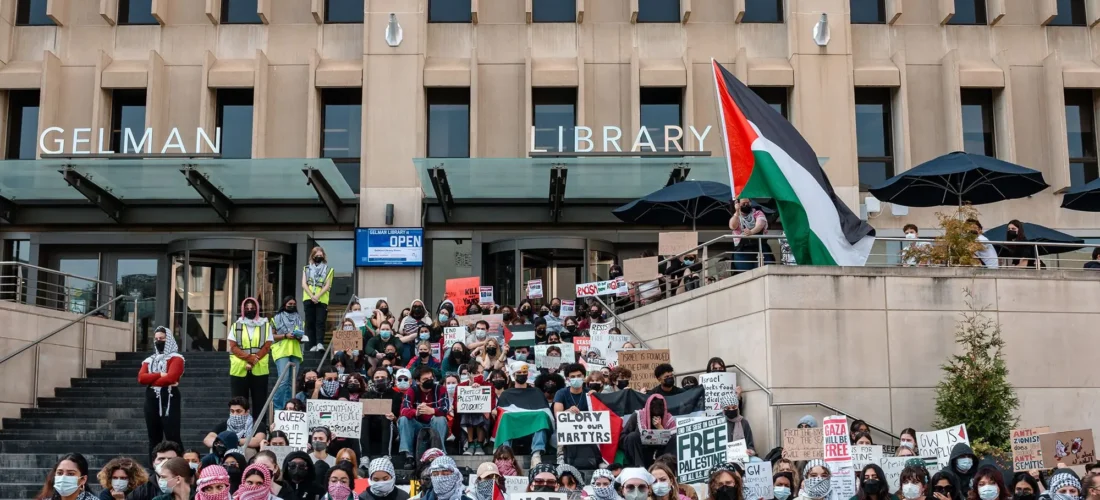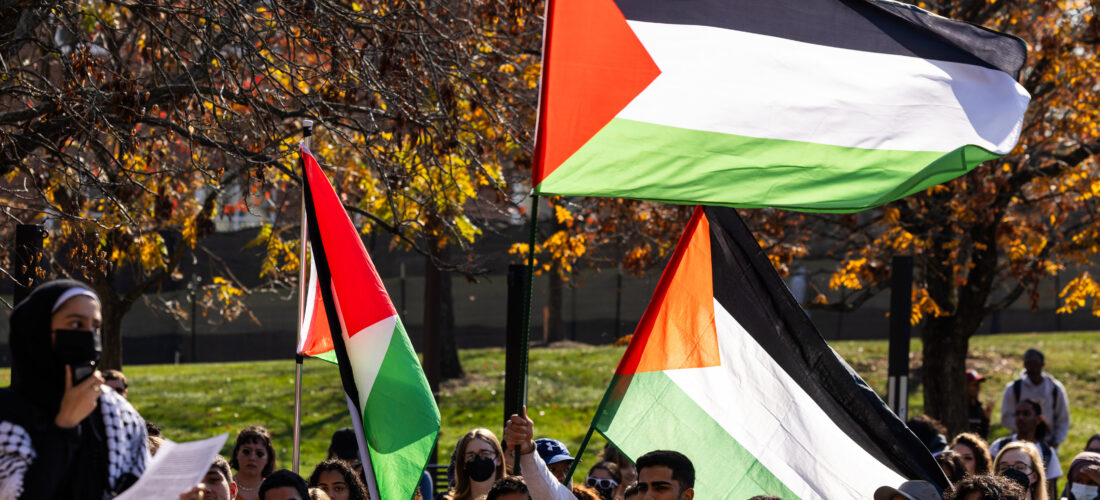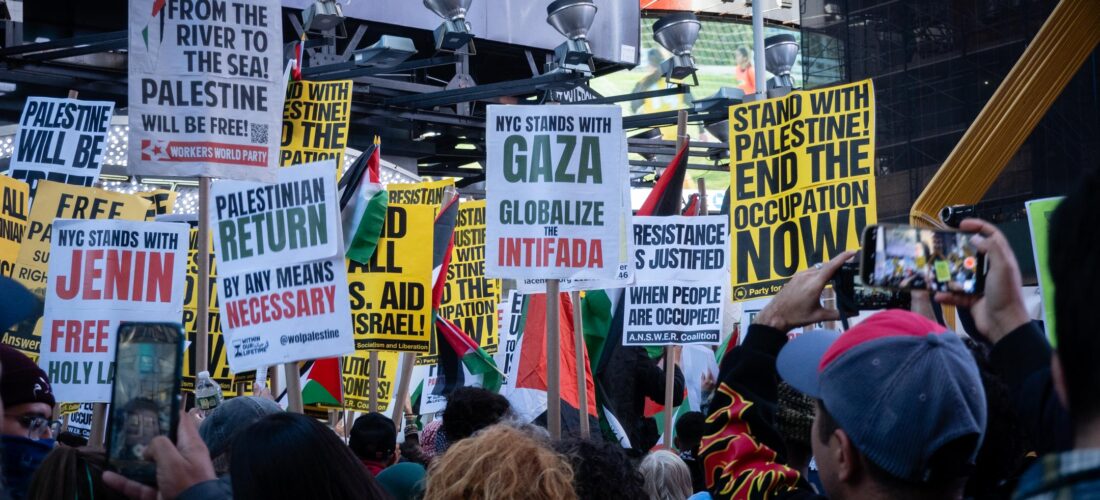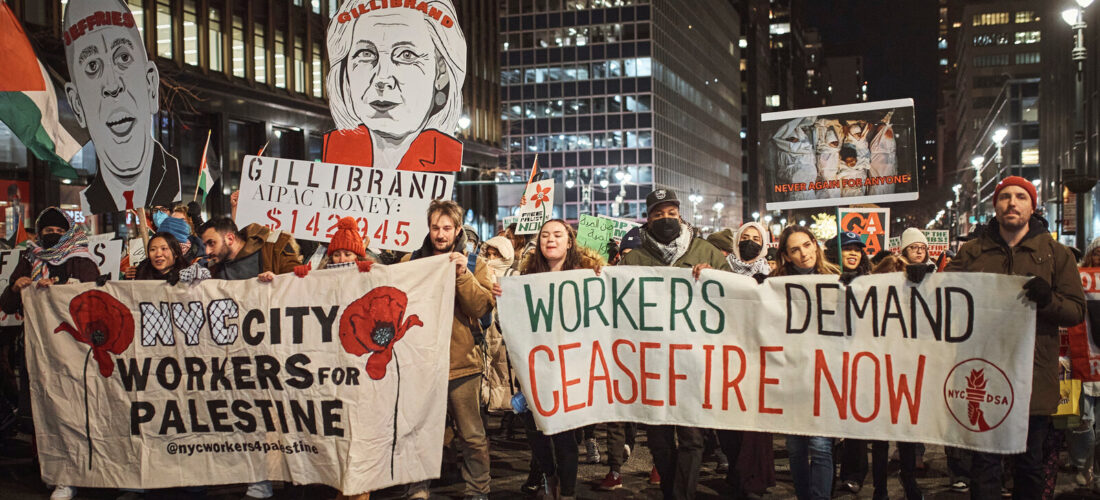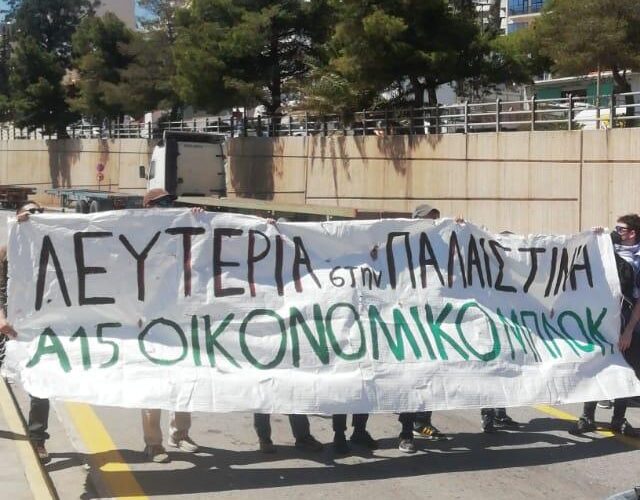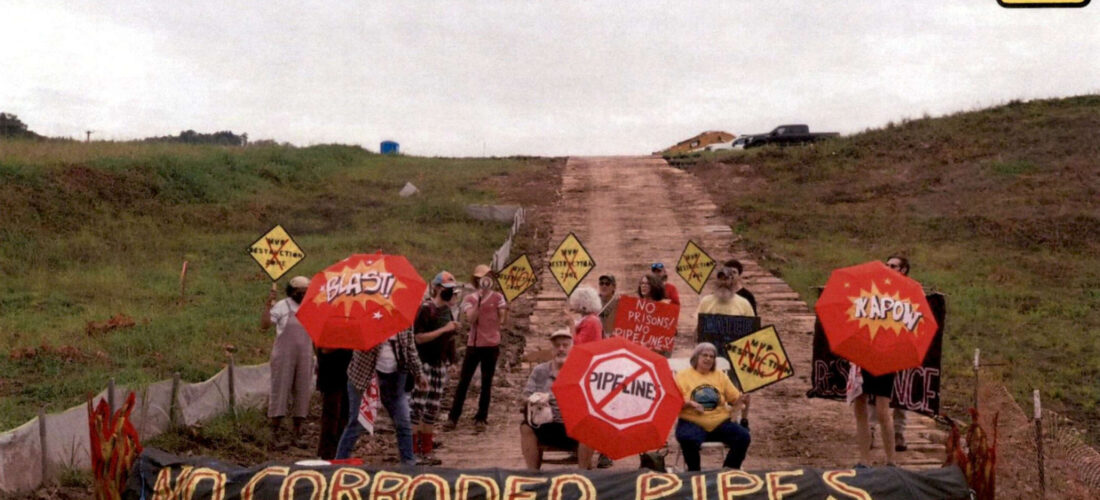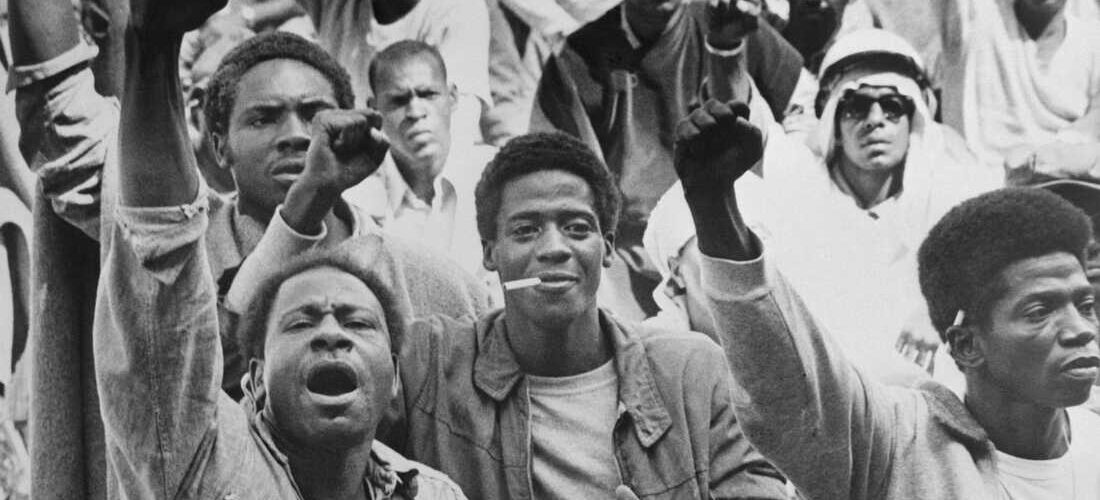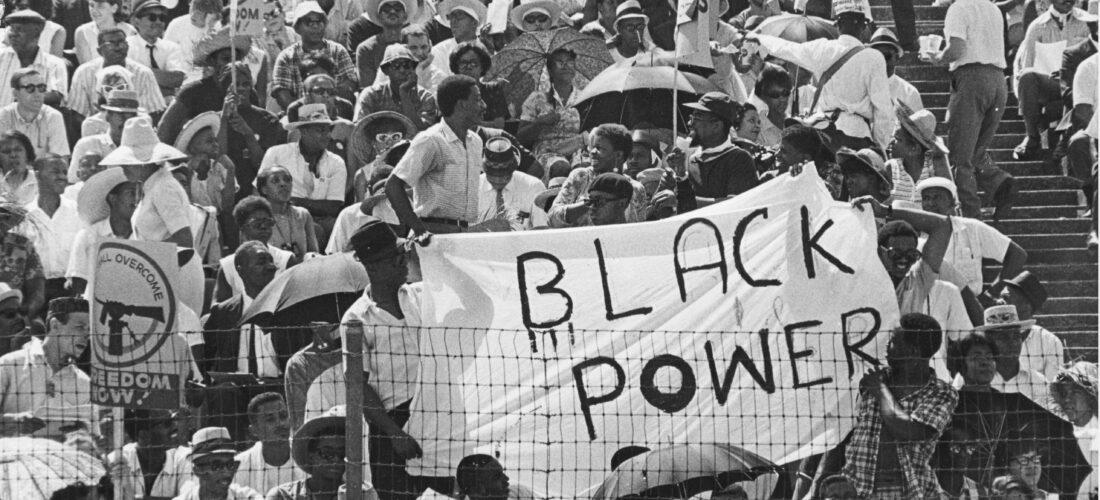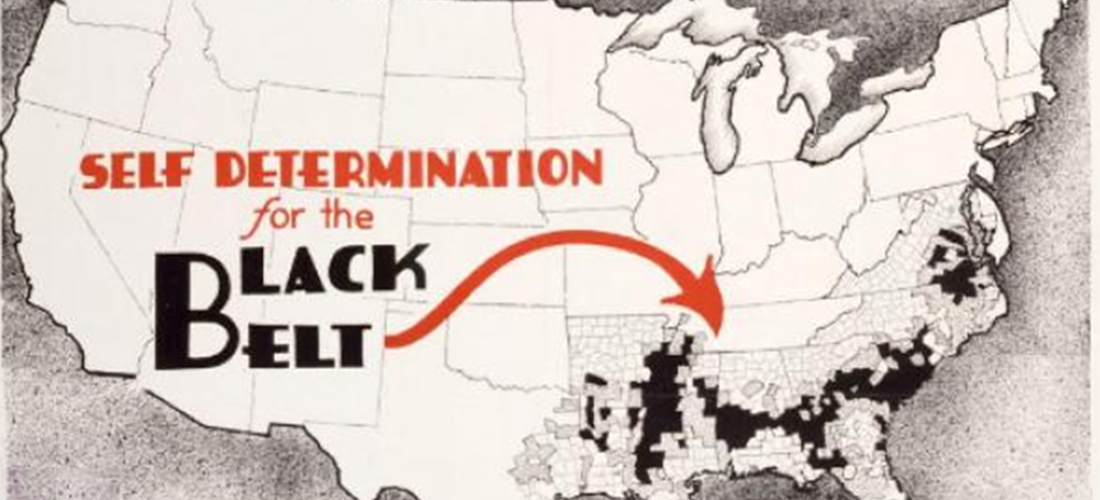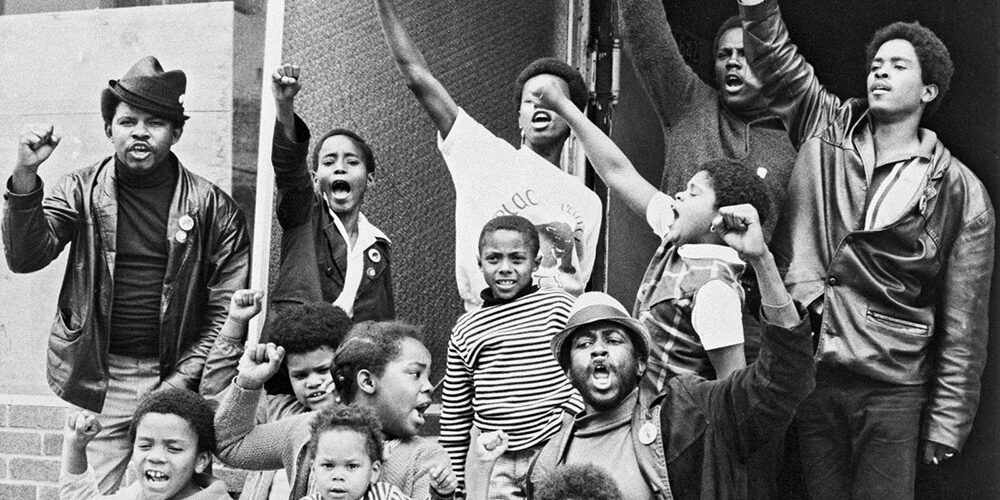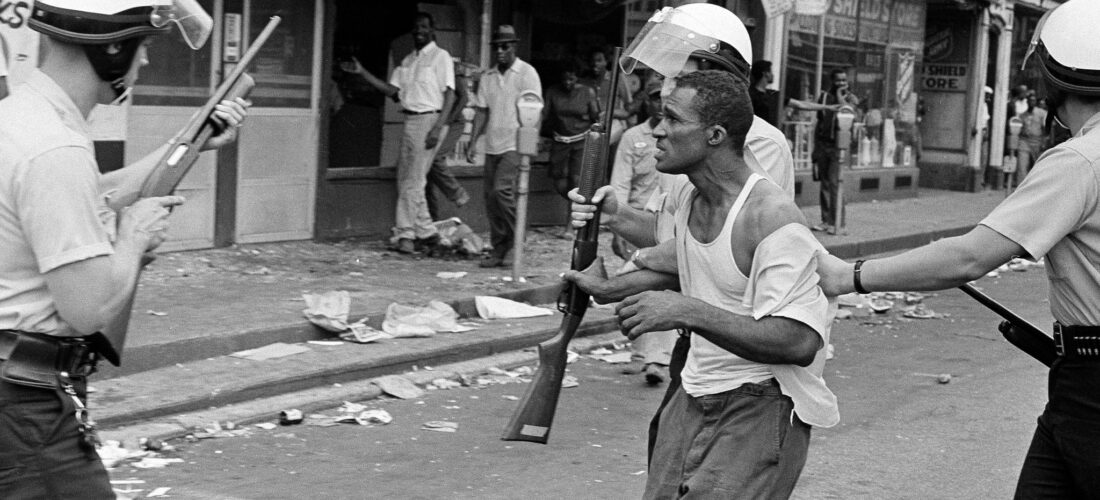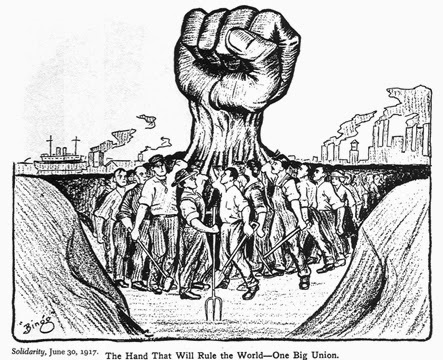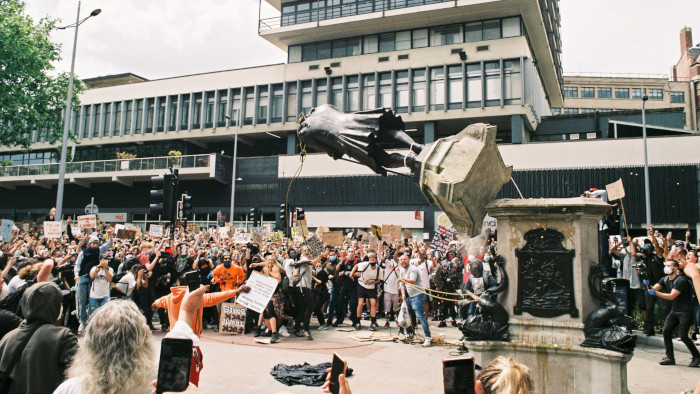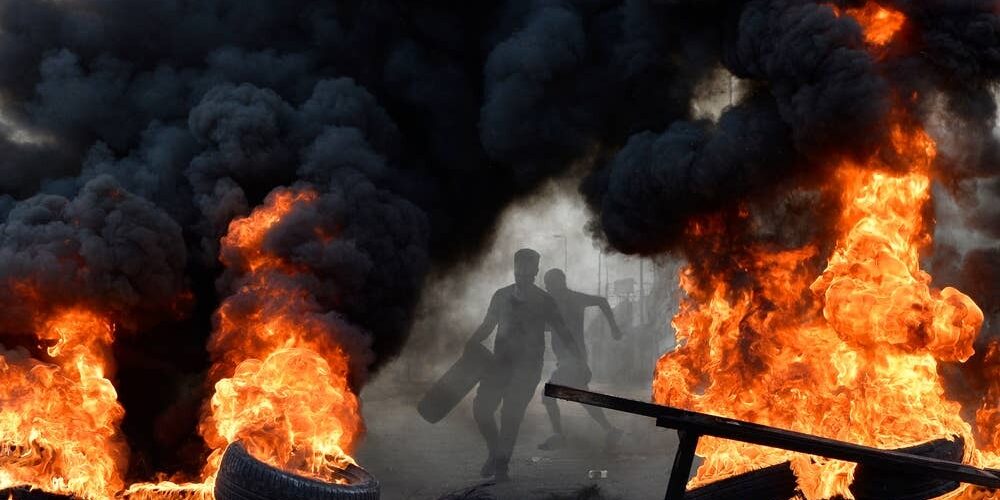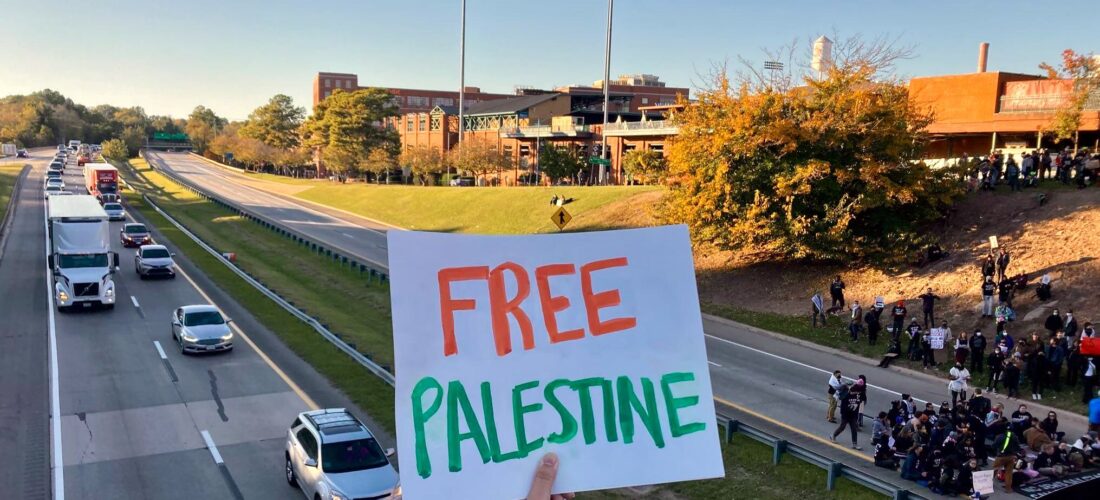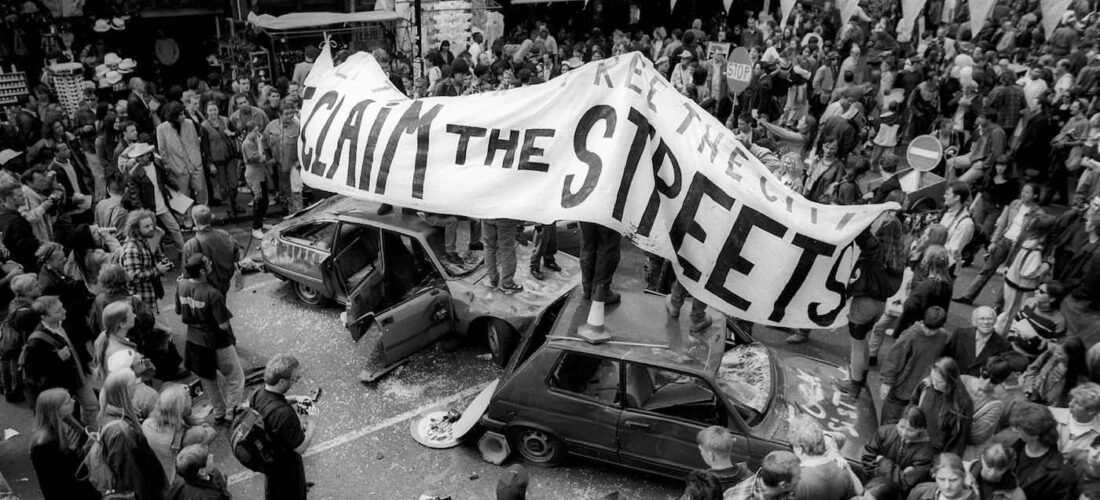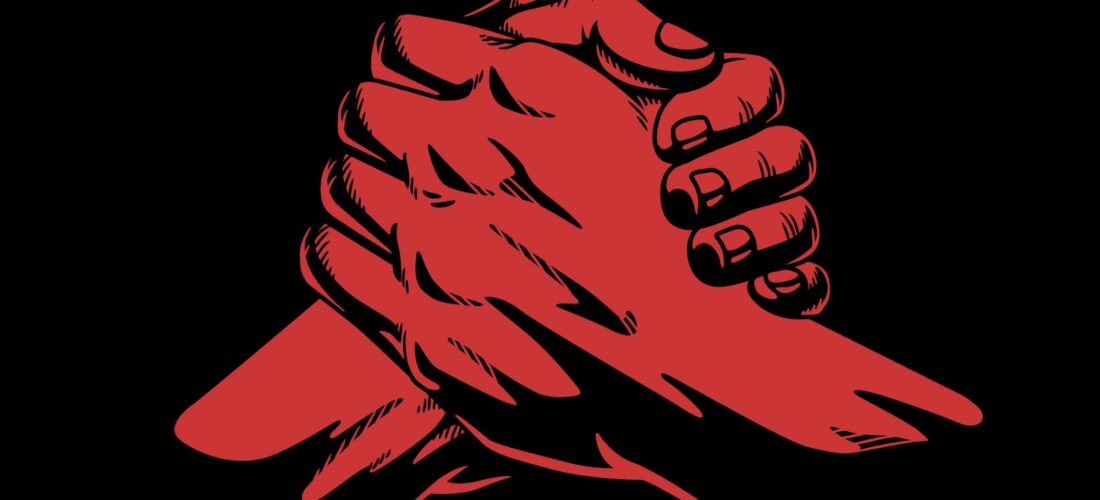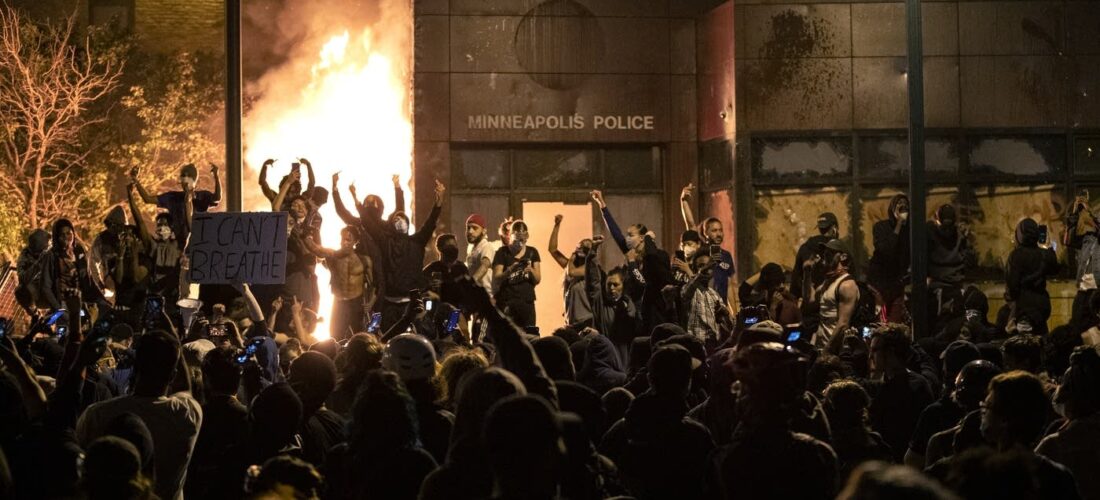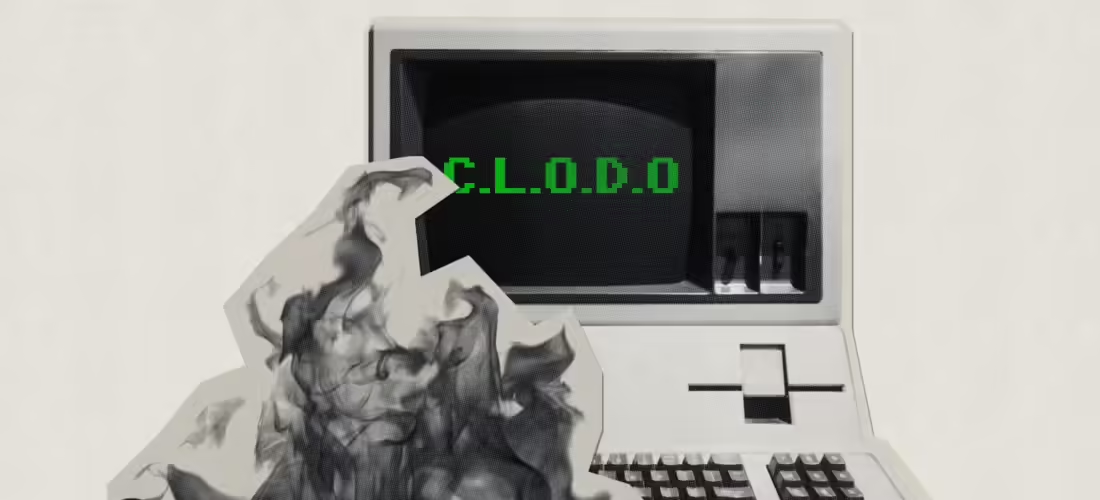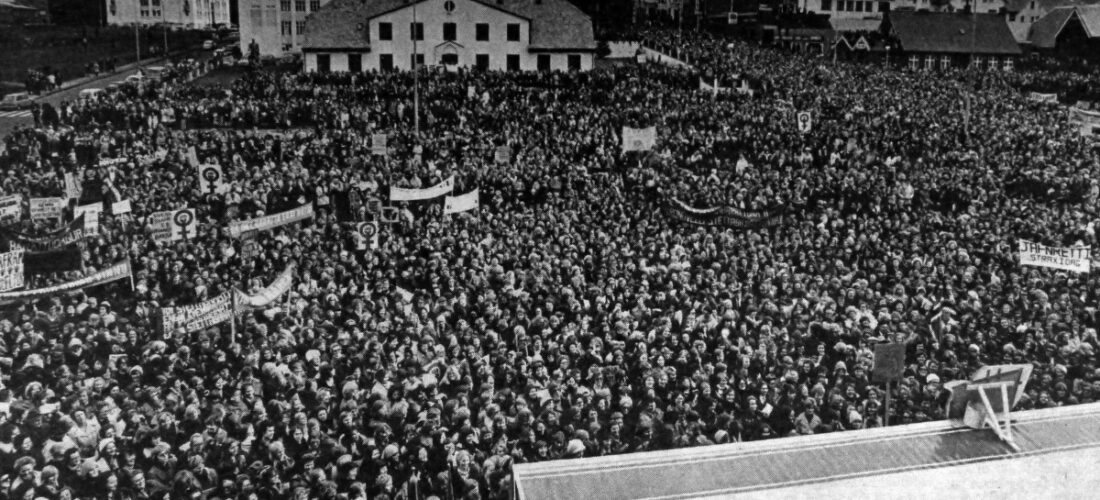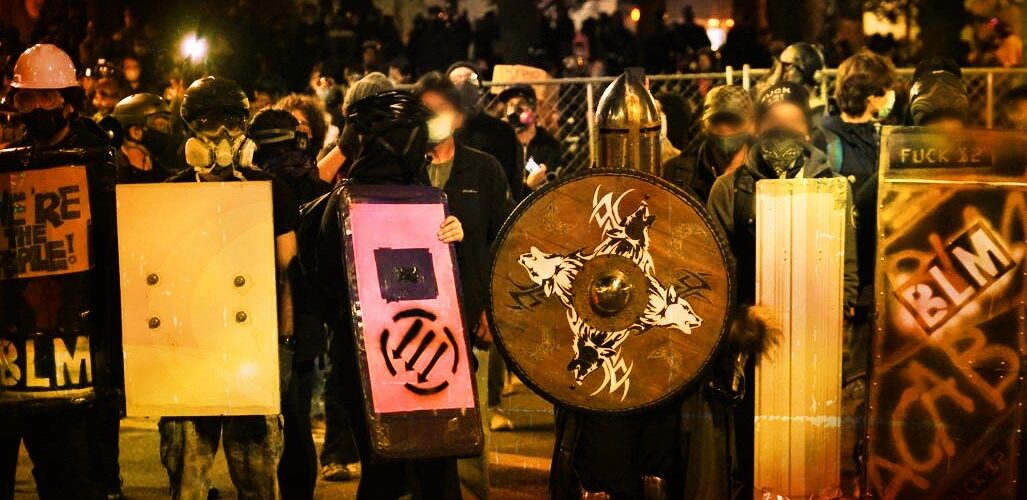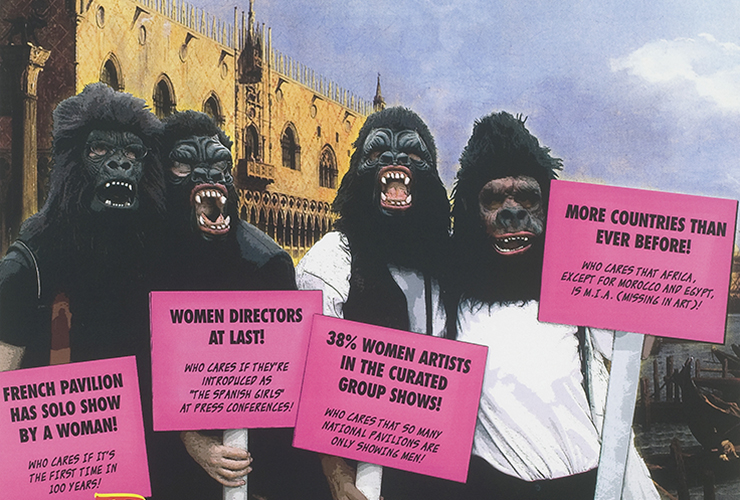This collection of texts primarily features an essay titled “BUT WE HAVE TO, SO WE DO IT REAL SLOW” by Noche, which explores the concept of anti-work within the context of Mexican and Mexican-American identity in the United States. The author challenges the prevailing pro-work sentiment, even within radical circles, arguing that elements of labor refusal and resistance are already present in Mexican-American culture, often in subtle or playful forms. The essay contrasts the traditional labor movement’s focus on better working conditions with a call for the abolition of work itself, linking this idea to historical anti-work movements and the critique of capitalism. Noche suggests that everyday acts of slacking, stealing, and working slowly can be seen as forms of resistance, and ultimately advocates for a world free from the constraints of wage labor, the state, and capitalist structures.
Author: Disruptnow
Revolution: Program or Communization? – Agitations (n.d.)
Authority, Defining the Enemy, Disruptive Spaces, Privatization, Self Institution, Subjectives of Refusal, Subjects Redefined, Tactics of Disruption, The Bourgeoisie, The Workplace, WorkersThis translated text explores the concept of “communization” as a revolutionary strategy, contrasting it with what it labels “programmatism,” the earlier 20th-century approach focused on the proletariat seizing state power. The source argues that programmatism, which aimed to manage the means of production, ultimately failed because it did not challenge the core of capitalist exploitation: the law of value and commodity production. Instead, communization proposes the immediate abolition of capitalist categories like value, wage labor, and social divisions through the self-negation of the proletariat. The authors suggest that the failure of past revolutionary attempts and the restructuring of capitalism in the 1970s necessitate this new approach, one that emphasizes practical, non-commodified actions over predetermined programs or theories.
Mothering Against Motherhood: doula work, xenohospitality and the idea of the comrade – Sophie Lewis (2022)
2011-Present, Authority, Date, Defining the Enemy, Disruptive Spaces, Imperialism, Patriarchy, Self Institution, Subjectives of Refusal, Subjects Redefined, Tactics of Disruption, The Home, White Supremacy, WomenThis essay, titled “Mothering Against Motherhood: doula work, xenohospitality and the idea of the momrade” by Sophie Lewis, explores the concept of “mothering against motherhood” and “family abolition.” She argues for a communist horizon where care work is collectivized and relationships are based on chosen solidarity rather than biological ties, challenging the capitalist and patriarchal norms embedded in the traditional family.
Be Gay Do Crime – Mary Nardini Gang (2019)
2011-Present, Authority, Blockade/Barricade, Consciousness Raising, Date, Defining the Enemy, Disruptive Spaces, Infrastructure/Data, Institutions, Occupation, Queer, Sabotage/Ecotage, Subjectives of Refusal, Tactics of Disruption, The 'Natural World', The Bourgeoisie, The Home, The Workplace, Urban Spaces, White SupremacyThis excerpt, from the introduction of a book titled “Be Gay Do Crime” by Mary Nardini Gang, reflects on ten years of queer, anarchist, criminal, and mystical resistance. It details the origins of their movement in Milwaukee’s Riverwest neighborhood, inspired by insurrections elsewhere and a commitment to a “criminal queer association.” The text emphasizes living a life outside societal norms, viewing normalcy as an enemy, and engaging in direct actions ranging from looting and blockades to caring for comrades and practicing various forms of magic and healing.
The Billboard Liberation Front Manifesto (1992)
1990-2010, Date, Disruptive Spaces, Infrastructure/Data, Sabotage/Ecotage, Tactics of DisruptionThis manifesto argues that in contemporary society, advertising has become the dominant force shaping our understanding of the world and ourselves, displacing older forms of culture like art, science, and spirituality. It posits that media primarily serves to deliver advertisements, and even artistic expression is now largely treated as a commodity influenced by market trends. Ultimately, the document declares that existence is intertwined with advertising and encourages individuals to use any means necessary to reclaim and alter advertising messages as a form of personal expression and communication.
Interview with Jack Napier from the Billboard Liberation Front – Brian Gonnella (2009)
1990-2010, Date, Disruptive Spaces, Infrastructure/Data, Sabotage/Ecotage, Tactics of DisruptionThis piece presents an interview with Jack Napier, a representative of the Billboard Liberation Front (BLF), a group that modifies outdoor advertisements. The author, Brian Gonnella, explores the connection between the BLF’s work and graffiti culture, initially through the lens of culture jamming, a concept Napier distances the BLF from, associating it more with Adbusters. Napier discusses the BLF’s history, motivation as a continuation of individualistic resistance, and their stance on the role of art versus marketing in their actions, while also reflecting on the impact and meaning of both billboard modification and different forms of graffiti.
The Art and Science of Billboard Improvement: A Comprehensive Guide to the Alteration of Outdoor Advertising – Billboard Liberation Front (2008)
1990-2010, Date, Disruptive Spaces, Infrastructure/Data, Sabotage/Ecotage, Tactics of DisruptionThis guide, published by the Billboard Liberation Front, offers a comprehensive, step-by-step manual for altering outdoor advertising. It details the various types of billboards, methods for choosing suitable targets, strategies for planning and executing “improvements,” including techniques for producing graphic overlays and ensuring security and safety.
16 Things You Can Do to Be Ungovernable – Indigenous Action Media (2020)
2011-Present, Authority, Date, Defining the Enemy, Indigenous, Self Institution, Subjectives of Refusal, Tactics of DisruptionThis excerpt, published shortly after the 2020 U.S. Presidential election, presents a perspective rejecting both major political parties, arguing that neither offers genuine liberation from colonial oppression. Instead of relying on electoral politics, the text proposes a path towards being “ungovernable” through direct action and building alternative community structures. It outlines sixteen specific actions individuals and groups can take, such as forming affinity groups, developing practical skills, practicing mutual aid and defense, and challenging oppressive systems like capitalism, white supremacy, and patriarchy. Ultimately, the document advocates for building autonomous organizing and resisting colonial authority on stolen land.
Rethinking the Apocalypse: An Indigenous Anti-Futurist Manifesto (n.d.)
Defining the Enemy, Disruptive Spaces, Imperialism, Indigenous, Infrastructure/Data, Sabotage/Ecotage, Subjectives of Refusal, Tactics of Disruption, The BourgeoisieThe source presents a powerful critique of the colonial and capitalist systems, arguing they represent an ongoing, destructive “apocalypse” built on violence, exploitation, and the suppression of Indigenous ways of being. It contrasts this linear, destructive trajectory with an Indigenous perspective of time and existence that is cyclical and rooted in ancestral knowledge and connection to the Earth. The text rejects the notion of seeking solutions within the existing colonial framework, instead calling for a return to ceremony, collective dreaming, and disruptive action as forms of resistance and liberation. Ultimately, it posits that the survival and flourishing of Indigenous worlds are contingent upon the dismantling of the colonial “dead world.”
You Cannot Profit off Our People’s Blood and Think Students Will Not Come for Your Money – Hammer & Hope (2024)
2011-Present, Authority, Date, Defining the Enemy, Disruptive Spaces, Imperialism, Institutions, Occupation, Students, Subjectives of Refusal, Tactics of DisruptionThis source presents conversations with five college student groups actively organizing for Palestine solidarity at various universities in the United States. The students discuss their strategies and tactics for raising awareness and demanding institutional change, including protests, sit-ins, teach-ins, and divestment campaigns. They focus on disrupting the flow of capital tied to what they perceive as Israeli occupation.
Statement on Palestine and Student Protests – University of Maryland, Baltimore Macro Student Union of the School of Social Work (2024)
2011-Present, Authority, Date, Defining the Enemy, Disruptive Spaces, Imperialism, Institutions, Students, Subjectives of RefusalThis statement from the SSW Macro Student Union critiques the University of Maryland Baltimore and its School of Social Work for their handling of the genocide in Palestine, arguing that the institutions prioritize profit over student well-being and uphold oppressive power structures. The student union emphasizes that social work ethics necessitate advocating for Palestinian liberation and demands that the university disclose and divest from companies contributing to the genocide, issue a statement acknowledging the genocide and scholasticide, reconsider their commencement speaker choice due to his pro-Israel stance, among other demands. The statement concludes by aligning their efforts with historical student movements advocating for social change and commemorating the 76th anniversary of al-Nakba.
Open Letter – Columbia Students for Justice in Palestine and Columbia Jewish Voice for Peace (2023)
2011-Present, Authority, Date, Defining the Enemy, Disruptive Spaces, Imperialism, Institutions, Students, Subjectives of RefusalThis document is an open letter authored by Columbia Students for Justice in Palestine and Columbia Jewish Voice for Peace condemning Israel’s actions as settler-colonialism and apartheid, while expressing solidarity with Palestinian resistance. The authors criticize Columbia University’s administration for biased communications that favor Israel and disregard Palestinian suffering, and for its continued financial ties to companies profiting from the occupation. They demand the university acknowledge Palestinian humanity, divest from implicated companies, and end academic programs and partnerships that they argue normalize apartheid. The letter concludes with a call for student action and protest to pressure the administration and achieve justice for Palestinians.
Statement on the Ceasefire in Gaza – NYC Labor for Palestine (2025)
2011-Present, Date, Defining the Enemy, Disruptive Spaces, Imperialism, The WorkplaceThis source presents a statement from NYC Labor for Palestine following a ceasefire in Gaza, which they view as a significant victory for Palestinian resistance over the Zionist entity and U.S. Empire. The group expresses solidarity with the Palestinian people after a period of intense violence and emphasizes the ongoing urgency of confronting what they call U.S.-backed Israeli genocide. They reiterate their commitment to the Boycott, Divestment and Sanctions (BDS) movement and outline demands for unions and workplaces, including ending the siege on Gaza, halting U.S. military aid to Israel, and severing ties with Israeli labor organizations. The statement also criticizes the U.S. government, specifically the Biden administration, for its role in the conflict, and calls for workers to engage in resistance against the forces they believe support the occupation of Palestine.
A15 Athens Economic Blockade for Palestine Statement (2024)
2011-Present, Blockade/Barricade, Date, Defining the Enemy, Disruptive Spaces, Imperialism, Infrastructure/Data, Tactics of DisruptionThis is a statement from a group in solidarity with the Palestinian Resistance. They argue that traditional forms of protest are no longer sufficient and therefore support a global economic blockade, citing their action at the port of Perama as part of this effort to disrupt the systems that facilitate the conflict. The statement specifically targets ZIM Shipping, an Israeli company it accuses of being integral to the logistical support of the Israeli military, and also condemns the Greek government for its military and economic agreements with Israel, viewing these as evidence of Greek complicity.
10 Steps for Setting Up A Blockade – Anonymous (n.d.)
Blockade/Barricade, Tactics of DisruptionThis guide presents a ten-step process for organizing and carrying out a blockade as a form of direct action against projects like the Line 9 pipeline. It opens with a brief overview of blockades, explores the rationale behind using them as a tactic, examines recent examples, and offers practical guidance on how to create an effective blockade. The zine comes out of the blockades against various oil pipelines in North America and as such it is heavily rooted in those experiences.
Accomplices Not Allies: Abolishing the Ally Industrial Complex – Indigenous Action Media (2014)
2011-Present, Date, UncategorizedThis zine offers a sharp critique of the political label “ally” and the network of activists who have created what it calls an “ally industrial complex,” driven by their own reputations as anti-oppression advocates. Grounded in the context of Indigenous resistance, it examines various problematic forms of allyship—including savior figures, opportunists, academics, and self-declared allies—who often center themselves rather than the communities they claim to support. Instead of promoting the concept of “ally,” the zine calls for the emergence of “accomplices”: individuals who attack colonial structures and ideals through solidarity rooted in trust, consent, and shared struggle.
De-Arrest Primer – Anonymous (2024)
2011-Present, Authority, Blockade/Barricade, Date, Defining the Enemy, Sabotage/Ecotage, Tactics of DisruptionThis is a draft of a primer on de-arresting, which is defined as the act of freeing someone seized by law enforcement officers (LEOs), also known as un-arresting. It presents different tactics that can be employed for de-arresting, ranging from physical interventions to pressure campaigns and blocking police vehicles.
Prisoners in Revolution – Roger Boberg, Jaan Laaman, John Yancey, and Richard Williams (1975)
1946-1989, Authority, Date, Defining the Enemy, Disruptive Spaces, Imperialism, Institutions, Sabotage/Ecotage, Self Institution, Strike, Subjectives of Refusal, Subjects Redefined, Tactics of DisruptionThis statement, written by revolutionary prisoners at New Hampshire State Prison in 1975, serves as a response and further discussion of the Weather Underground’s “Prairie Fire”, aiming to provide a deeper examination of the experiences of prisoners and ex-prisoners. The statement argues the experiences of prisoners provide a unique perspective on the need for revolution against the capitalist system and the development of methods of control like behavior modification, stressing the importance of unity and solidarity within and outside of prison walls for the larger anti-imperialist movement. It contends that the prison movement is an integral part of the revolutionary struggle, showcasing how conditions of captivity, similar to wartime, expose the naked injustice and terror of American society and breed a determined, militant cutting edge for the overall People’s Struggle.
Black Liberation Will Put a Stop to the Klan, the Nazis & Killer Cops – John Brown Anti-Klan Committee (n.d.)
Defining the Enemy, Self Institution, Tactics of Disruption, White SupremacyThis source discusses the ongoing struggle against white supremacist groups like the Ku Klux Klan and Nazis. It highlights acts of resistance, such as Black and anti-Klan demonstrators who fought the Klan and police in the streets, successfully forcing the cancellation of a planned march in Washington, D.C.. The document calls for building a movement that opposes white supremacist violence from groups like the Klan and Nazis, as well as from police, emphasizing the need to support the Black Liberation Movement and defend revolutionary organizations. Grounded in the historical fight for liberation, the source advocates for struggling for land and independence for a Black nation and forcefully states, “DEATH TO THE KLAN AND THE NAZIS!”
Why We Support Black Nationalism – John Brown Anti-Klan Committee (n.d.)
Defining the Enemy, Self Institution, Tactics of Disruption, White SupremacyThis document explores the concept of Black Nationalism, asserting its historical roots in the struggle for Black empowerment and self-determination in the United States. It highlights the economic disadvantages faced by Black Americans despite their historical contributions and labor. The text also touches upon the legacy of Malcolm X and the ongoing relevance of Black liberation movements, emphasizing the need for Black control over resources and political power. The author suggests that achieving genuine democracy requires addressing these historical and ongoing inequities.
Black Politics: A Journal of Liberation (1968)
1946-1989, Black, Date, Defining the Enemy, Imperialism, Sabotage/Ecotage, Self Institution, Subjectives of Refusal, Tactics of Disruption, White SupremacyThis collection of excerpts from Black Politics: A Journal of Liberation (Vol. 1, 1968) offers insights into the Black Power movement during a pivotal year. The document covers a variety of topics, including discussions on political strategy, international relations, and resistance against oppression. It also contains information regarding the historical context of the movement, including its connections to other global liberation struggles, and details about weapons and self-defense, reflecting the urgency and intensity of the era.
In Defense of the Right to Political Secession for the Afro-American Nation: Papers and Resolutions from the School on the Afro-American National Question (1982)
1946-1989, Black, Date, Defining the Enemy, Self Institution, Subjectives of Refusal, Tactics of Disruption, White SupremacyThese excerpts primarily discuss the Marxist-Leninist perspective on the “Afro-American National Question,” arguing that Afro-Americans in the Black Belt region of the Southern U.S. constitute an oppressed nation with the right to self-determination, including the right to secede and form an independent state. In addition to promoting the right to political secession, the text champions the struggle against white chauvinism as another crucial element for a genuine proletarian revolution in the United States, asserting that this fight is essential for international proletarian solidarity.
The U.S. Imperialist State and the Black Nation – Saladine Muhammad (n.d.)
Defining the Enemy, Imperialism, Self Institution, Tactics of Disruption, White SupremacyThis pamphlet, published by The Institute of Black Political Studies, presents a Black scientific socialist perspective on the nature of U.S. imperialism and the struggle for Black national liberation. It argues that the U.S. is a settler-colonial-capitalist system where Black people constitute a domestic colonized nation, facing dual oppression economically, politically, and intellectually compared to the white working class. Ultimately, it advocates for a revolutionary Black nationalist party guided by scientific socialism to lead the national liberation struggle and form strategic alliances with other anti-imperialist movements globally.
Stop Police Brutality – New York City-Wide Mobilization Committee Against Police Brutality (1979)
1946-1989, Authority, Date, Defining the Enemy, Disruptive Spaces, Self Institution, Tactics of Disruption, Urban Spaces, White SupremacyThis pamphlet, published in 1979 by the New York City-Wide Mobilization Committee Against Police Brutality, condemns police brutality and systematic oppression, particularly against Black and Hispanic working-class individuals. It provides examples of police killings and assaults in various cities, arguing that these incidents are not isolated but rather part of a national policy to control and suppress marginalized communities. It calls for organized resistance and armed self-defense as the necessary response.
From the Encampments: Student Reflections on Protests for Palestine (2024)
2011-Present, Blockade/Barricade, Date, Defining the Enemy, Disruptive Spaces, Imperialism, Institutions, Occupation, Tactics of DisruptionThis document features reflections from students at Columbia Law, City University of New York (CUNY) Law, New York Law, and Yale Law students, offering firsthand accounts and analyses of the motivations, demands, and experiences within the student encampments protesting their universities’ financial ties to Israel and the ongoing conflict in Gaza. The sources also highlight the historical context of student activism, drawing parallels to past divestment movements, and argue that universities are deeply intertwined with global and local systems of capitalism, gentrification, and imperialism, which the protests aim to disrupt.
Action Planning: A Guide to Planning Effective Direct Action – Seeds for Change (n.d.)
UncategorizedThis source is a guide by Seeds for Change that discusses how to organize effective direct action. Tactics such as occupying a building, jamming a company’s phone line with calls, breaking machinery, disrupting an event, blocking vehicles, among other direct actions are described. The guide also emphasizes the importance of identifying targets, understanding different types of pressure, and various other planning and logistical steps.
Setting Up a Workers’ Co-Op – Seeds for Change (n.d.)
UncategorizedThis document serves as a concise guide for individuals aiming to establish a workers’ cooperative, a democratically run business owned and operated by its employees. It outlines the essential stages involved, from forming an initial group and developing a business plan to navigating legal structures, securing finances, and officially launching the cooperative. Ultimately, setting up and running a workers’ co-op is presented as a form of direct action where people collectively take control of their work lives to create a more just and ecologically conscious way of working.
Anarchic Agreements – Seeds for Change (n.d.)
Uncategorized“Anarchic Agreements” is a guide for social and environmental justice groups seeking to establish internal rules and processes in an empowering way. It was co-written by Seeds for Change and researchers from the Anarchy Rules research project. The text explores crucial areas for “constitutionalising” a group, including defining its purpose, decision-making methods, task management, necessary policies, and strategies for maximizing empowerment.
What is Direct Action? – Seeds for Change (n.d.)
UncategorizedThis document, a guide from Seeds for Change, explores direct action as a means to achieve political goals, contrasting it with indirect methods. It showcases successful examples in Britain, demonstrating how diverse and disruptive tactics like blockades, occupations, and property damage are employed to exert pressure. It highlights key points for effective direct action, including sustained campaigns, clear aims, targeted pressure, identifying leverage, and the importance of organized communities and diverse roles.
The ‘GlobalMay Manifesto’ of the International Occupy Assembly (2012)
2011-Present, Authority, Date, Defining the Enemy, Occupation, Privatization, Tactics of Disruption, The BourgeoisieThis is a manifesto written by an international Occupy assembly, a part of the larger Occupy movement. It presents a powerful critique of the current global system, asserting that it prioritizes profit and competition over human dignity and environmental well-being. Emerging from global protest movements, the manifesto condemns economic inequality, corporate influence over politics, and the existing financial framework. The manifesto goes beyond mere complaint, aiming to pinpoint the causes of the crisis and propose alternatives to the existing order. Ultimately, the document is a call to action, emphasizing that the movements will fight until global democracy and social justice are achieved.
A Demonstrator’s Guide to Lockdowns and Blockades – CrimethInc. (2025)
2011-Present, Blockade/Barricade, Consciousness Raising, Date, Occupation, Sabotage/Ecotage, Tactics of DisruptionThis guide from CrimethInc. describes a range of resistance and disruption tactics, from using lockboxes to physically block spaces and movement to constructing barricades with materials like junk cars, wood, and metal. It is noted in the guide that demonstrators can also employ tactics such as slowing traffic with bicycle blockades, banners, or even disabled vehicles, and engage the public through rallies, leaflet distribution, and symbolic actions. Furthermore, the text recounts an action that utilized public transportation and coordinated movement to reach and blockade a key bridge.
The Written Resistance #6 – National Students for Justice in Palestine (2025)
2011-Present, Consciousness Raising, Date, Defining the Enemy, Disruptive Spaces, Imperialism, Institutions, Occupation, Students, Subjectives of Refusal, Tactics of DisruptionThis is the sixth edition of the newsletter written by a compilation of individual authors and published by the National Students for Justice in Palestine. The authors analyze the historical context of the movement, discuss internal challenges like unifying various factions, and examine the broader global forces at play, including US imperialism and the capitalist system. Several pieces explore how different fields, such as medicine, and various locations, like Oklahoma, connect to and are impacted by this struggle. Furthermore, the texts advocate for continued resistance, emphasizing strategies like grassroots organizing, confronting corporate complicity in the oppression of Palestinians, and fostering solidarity across different communities and movements to achieve lasting liberation.
DEFENDING THE CAMP (2024)
2011-Present, Blockade/Barricade, Date, Defining the Enemy, Disruptive Spaces, Imperialism, Institutions, Occupation, Students, Subjectives of Refusal, Tactics of DisruptionThis document, “DEFENDING THE CAMP,” published by CrimethInc., is a report from participants in the Gaza solidarity encampment at the University of Illinois Urbana-Champaign. It recounts the initial days of the protest, detailing the students’ efforts to establish and maintain their encampment in the face of police intervention and university opposition.
Strategizing for Palestinian Solidarity – CrimethInc. (2024)
2011-Present, Blockade/Barricade, Date, Defining the Enemy, Imperialism, Occupation, Tactics of DisruptionThis CrimethInc. zine explores the connections between Palestinian solidarity and other social justice movements, particularly the “Stop Cop City” effort in Atlanta, highlighting shared roots in resisting state violence and repression, including training exchanges between U.S. and Israeli police. The article also highlights examples of direct action resistance, such as the tactics of Palestine Action, a pro-Palestinian protest network that uses direct action to shut down and disrupt multinational arms dealers, targeting Elbit Systems through blockades and sustained campaigns, as well as historical precedents of blockades, demonstrations, and sabotage against war efforts.
Anarchist Techno Attacks: A Brief History of Reclaim the Streets – CrimethInc. and the Ex-Workers Collective (2024)
2011-Present, Authority, Blockade/Barricade, Date, Defining the Enemy, Disruptive Spaces, Occupation, Tactics of Disruption, The Bourgeoisie, Urban SpacesThis document, published by CrimethInc. and the Ex-Workers Collective, explores the history and impact of Reclaim the Streets actions, which combined anarchist principles with techno music and direct action. These events, often involving sound systems and street parties, aimed to disrupt capitalist norms and reclaim public spaces. The text highlights the decentralized and collective nature of these actions, emphasizing their role in fostering social critique and temporary autonomous zones. Through various examples and reflections, the document illustrates how these creative interventions challenged established power structures and celebrated communal resistance.
8 Things You Can Do to Stop ICE – Crimethinc. (2025)
2011-Present, Authority, Date, Defining the EnemyThis is an eight-step guide by Crimethinc. detailing actions one can take during interactions with U.S. Immigration and Customs Enforcement (ICE). The goal of the flyer is to educate individuals on their rights, empowering them to disrupt the plans of ICE and shift the power dynamics in encounters with law enforcement. The steps include knowing one’s rights, vetting information, assembling rapid response networks, organizing mutual aid, fighting criminalization, standing in solidarity with ICE detainees, connecting communities, and building a culture of resistance against ICE and state repression.
The Siege of the Third Precinct in Minneapolis (2020)
2011-Present, Authority, Blockade/Barricade, Date, Defining the Enemy, Disruptive Spaces, Infrastructure/Data, Institutions, Occupation, Sabotage/Ecotage, Tactics of Disruption, Urban Spaces, White SupremacyThis anonymous account analyzes the tactics and composition of the crowd that besieged the Third Precinct in Minneapolis during the May 2020 uprising in response to the George Floyd murder. Some tactics of disruption discussed include building barricades, looting, burning, and other forms of sabotage and direct action.
Founding Manifesto – Organização Socialista Libertária (2024)
2011-Present, Authority, Date, Defining the Enemy, Self Institution, Tactics of Disruption, The BourgeoisieThis document is the founding manifesto of the Brazilian Libertarian Socialist Organization (OSL), established in September 2024 following their first congress in July 2023. This document outlines the OSL’s core identity as a nationwide especifista anarchist organization, formed by the unification of several existing anarchist groups and individuals across Brazil. It details their political and ideological foundations along with their analysis of the capitalist-statist system. Additionally, the manifesto describes the OSL’s vision for a libertarian socialist society achieved through self-managed popular power and active engagement in social movements. This vision is guided by principles of unity, collective responsibility, and a commitment to long-term revolutionary transformation in Brazil.
Manifesto of the German Anti-Parliamentarians to the Proletariat of the World – Communist Workers Party of Germany (KAPD) (1921)
1840-1945, Date, Defining the Enemy, Disruptive Spaces, Subjectives of Refusal, The Bourgeoisie, The Workplace, WorkersThis document is a manifesto from the Communist Workers Party of Germany (KAPD), outlining its opposition to the tactics of the Third International and the Unified Communist Party of Germany (VKPD). They argue that Western Europe’s distinct economic and class conditions necessitate a different revolutionary path focused on independent proletarian action, the abolition of parliamentarism, and the destruction of traditional trade unions. The KAPD emphasizes the need for tactics that liberate the spirit of the proletariat and establish parties composed solely of committed communists.
Communique Following Attack on Colomiers (FR) Data-Processing Centre – Comité Liquidant Ou Détournant Les Ordinateurs (C.L.O.D.O.) (1983)
1946-1989, Date, Disruptive Spaces, Infrastructure/Data, Sabotage/Ecotage, Tactics of DisruptionThis communique was written by the Comité Liquidant Ou Détournant Les Ordinateurs (C.L.O.D.O.) on February 7, 1983, just ten days after the group’s bombing of the data-processing centre of Colomiers. C.L.O.D.O. is a group that emerged within the realm of French cyberpunk and technological counterculture and was primarily active during the 1980s and the 1990s. Their communique, published in 01 Hebdo, articulated their opposition to centralized computer systems, which they viewed as tools of state control and social inequality. C.L.O.D.O. denounced the increasing reliance on technology, arguing it exacerbated social problems like unemployment and reinforced existing power structures. The group asserted their destructive actions were a necessary response to an oppressive technological society and a form of solidarity with the world’s oppressed.
Ned Lud’s Proclamation (1811)
1700-1830s, Date, Defining the Enemy, Disruptive Spaces, Sabotage/Ecotage, Subjectives of Refusal, Tactics of Disruption, The Bourgeoisie, The Workplace, WorkersThis is a proclamation by Ned Lud, the legendary leader of the Luddites—an early 19th-century movement of English textile workers who protested against the introduction of mechanized looms and knitting frames, fearing these innovations would threaten their livelihoods. The Luddites engaged in direct actions such as destroying machinery and factories, as well as organizing riots and letter-writing campaigns. In this proclamation, Lud issues a death threat to anyone who informs the authorities about the ‘frame-breaking’ activities carried out by the Luddites, who were fighting against the rise of labor-saving technologies.
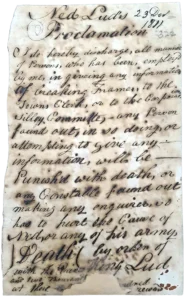
No More Miss America (1968)
1946-1989, Date, Defining the Enemy, Patriarchy, Sabotage/Ecotage, Subjectives of Refusal, Tactics of Disruption, WomenOn September 7, 1968, a coalition of women’s liberation groups planned various demonstrations against the annual Miss America Pageant in Atlantic City. These demonstrations aimed to challenge the pageant’s objectification of women through beauty standards, its historical exclusion of women of color, and its role as a symbol of militarism and consumerism. Some direct actions discussed in the source included picket lines, guerrilla theater, and a symbolic “Freedom Trash Can” to discard items representing restrictive feminine ideals, culminating in a boycott of pageant-related products and a rally. The source also contains a ten-point protest statement, outlining the group’s grievances against the Miss America pageant and its effects.
Women’s Day Off – Executive Committee for Women’s Day Off (1975)
1946-1989, Date, Defining the Enemy, Disruptive Spaces, Patriarchy, Strike, Subjectives of Refusal, Tactics of Disruption, The Home, The Workplace, WomenOn October 24, 1975, ignited by the activism of the Red Stockings radical women’s group, 90% of Iceland’s women went on strike to protest the exploitation of women’s unpaid labor at home and their underpaid, undervalued labor outside the home. The Committee for Women’s Day Off was founded in June 1975 to organize this action. This flyer, issued by the Executive Committee for Women’s Day Off, includes a call to action and outlines the reasons why the strike was essential.

Call for a Day of Action in Solidarity with Portland & Against the Federal Invasion – Youth Liberation Front (2020)
2011-Present, Authority, Blockade/Barricade, Date, Defining the Enemy, Disruptive Spaces, Occupation, Tactics of Disruption, Urban Spaces, White SupremacyThe Youth Liberation Front (YLF) issued a call for widespread demonstrations to be held on July 25th, 2020 to show solidarity with ongoing resistance in Portland against federal invasions. This call to action was a response to the deployment of federal troops beyond Portland, which the YLF viewed as an attempt to suppress the uprising against police brutality. The YLF, comprised of various local chapters and alliances, urged abolitionists, particularly youth, to organize these demonstrations demanding justice for victims of police violence. They explicitly stated that reform efforts were insufficient and advocated for the complete dismantling of policing.
An Interview with M.E. O’Brien (n.d.)
Disruptive Spaces, The Home, UncategorizedThis is an interview conducted with M.E. O’Brien, a leading voice of revolutionary queer politics, gender, and communist theory. The interview explores her concept of family abolition through a Marxist-feminist and queer lens, tracing its historical trajectory within capitalism and socialist movements. O’Brien discusses her influences, the arguments presented in her influential essay “To Abolish the Family,” and the potential of collectivizing care beyond traditional family structures. She examines the historical complexities of family politics in different contexts, including the Soviet Union, as well as the impact of immigration policies on marginalized communities in the U.S., among other key topics.
The Written Resistance #5 – National Students for Justice in Palestine (2024)
2011-Present, Authority, Blockade/Barricade, Date, Defining the Enemy, Disruptive Spaces, Imperialism, Institutions, Occupation, Sabotage/Ecotage, Students, Subjectives of Refusal, Tactics of DisruptionThis is the fifth edition of the newsletter written by a compilation of individual authors and published by the National Students for Justice in Palestine. The edition offers perspectives and reflections on the tactics and lessons learned from both historical and contemporary struggles against oppression and imperialism. It draws parallels between past movements, such as the Black Panther Party and Students for a Democratic Society, and current activism, including that of the Students for Justice in Palestine organization. The texts also critique the role of universities in perpetuating existing power structures, particularly through their focus on STEM fields and financial interests. Ultimately, the authors call for continued solidarity and resistance against injustice, stressing the importance of learning from past struggles to chart a path toward liberation.
The Written Resistance #4 – National Students for Justice in Palestine (2024)
2011-Present, Authority, Blockade/Barricade, Date, Defining the Enemy, Disruptive Spaces, Imperialism, Institutions, Occupation, Students, Subjectives of Refusal, Tactics of Disruption, UncategorizedThis is the fourth edition of the newsletter written by a compilation of individual authors and published by the National Students for Justice in Palestine. The edition features a range of articles documenting student activism across several universities, including Columbia, the University of North Carolina at Chapel Hill, Waterloo, Birzeit University, the American University of Beirut, and the University of Texas at Dallas. These articles explore student strategies, challenges with university administrations, and their connections to the military-industrial complex. The publication emphasizes the reclamation of political space and the forging of decolonized solidarity in a unified struggle against oppression.
Interview from “Confessions of the Guerrilla Girls” (1995)
1990-2010, Date, Defining the Enemy, Disruptive Spaces, Institutions, Patriarchy, Subjectives of Refusal, WomenThe Guerrilla Girls are an anonymous group of feminist artists and activists who formed in 1985 to combat sexism and racism within the art world. This source is an interview with the Guerrilla Girls, taken from their 1995 book, Confessions of the Guerrilla Girls. In the interview, the group discusses their origins, tactics, impact, view on the art world, and future plans.
Guerrilla Girls on the Art of Creative Complaining (2018)
2011-Present, Date, Defining the Enemy, Disruptive Spaces, Institutions, Patriarchy, Subjectives of Refusal, WomenThe Guerrilla Girls are an anonymous collective of feminist artists who combat sexism and racism within the art world. Founded in 1985, the group uses culture-jamming tactics and mass media to expose discrimination. This document is an interview with Frida Khalo, a founding member of the Guerrilla Girls collective. Khalo describes the various ways in which the Guerrilla Girls engage in resistance through creative activism, using provocative art and statistics to challenge discrimination and corruption in the art world.
On the Principles of Non-Collaboration – Movimiento de Liberacion Nacional (n.d.)
Defining the Enemy, Imperialism, UncategorizedThe Movimiento de Liberacion Nacional (MLN) was founded in 1977 as a coalition of anti-imperialist Puerto Rican and Chicano-Mexicano activists in the United States. This document by the MLN outlines the group’s stance against U.S. imperialism and its support for Puerto Rican independence and the socialist reunification of Mexico. It details the MLN’s historical context, including resistance to U.S. expansion and colonization. The document emphasizes the principle of non-collaboration with the U.S. government, particularly in the face of grand jury investigations targeting independence movements. Furthermore, the text promotes solidarity with armed clandestine movements and calls for the dismantling of U.S. imperial power.

